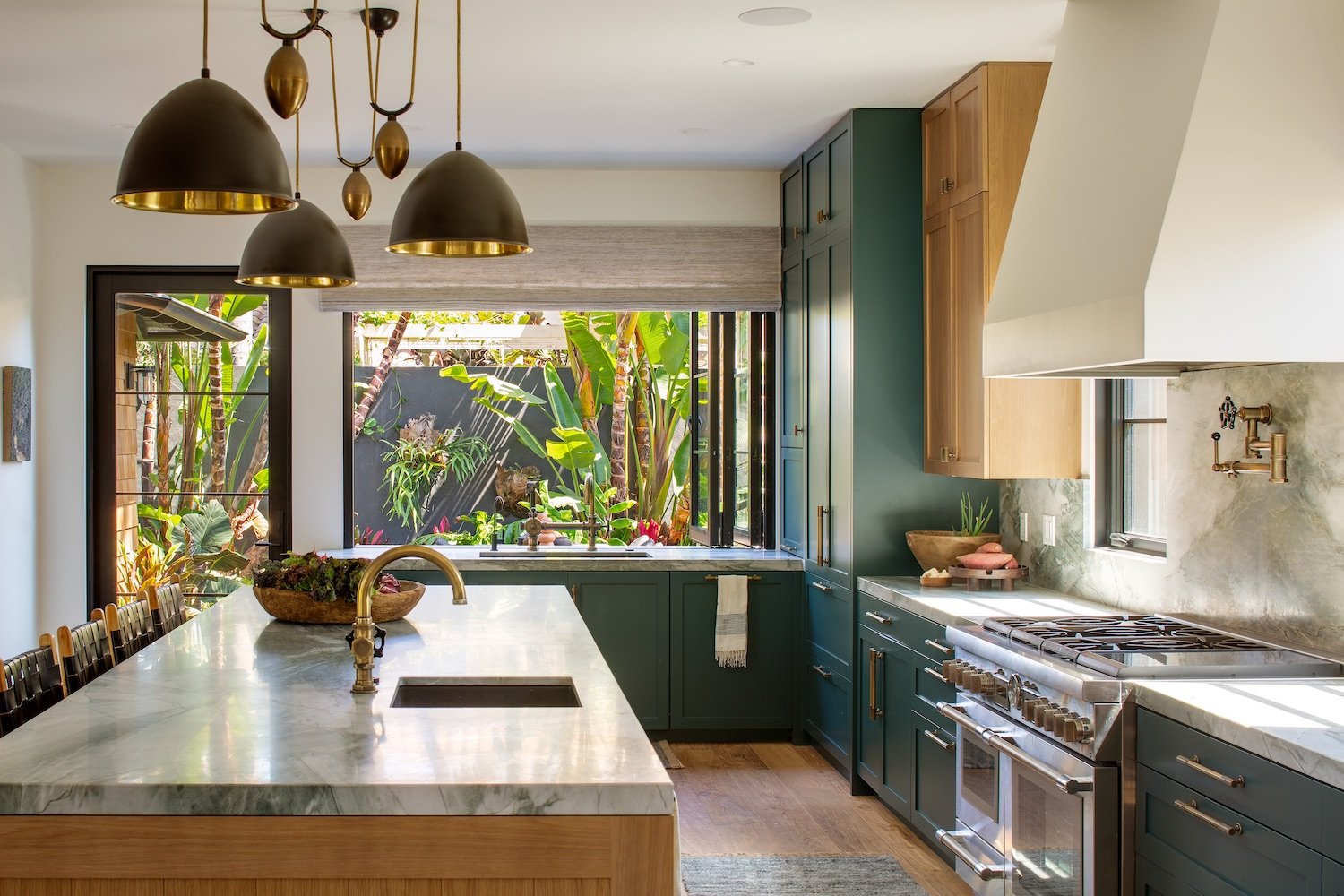Developers want hundreds of homes on a chunk of Mission Bay Park the mayor wants declared surplus
Two newly released documents promoting a wholesale makeover of the Marina Village banquet center on Mission Bay are roiling San Diego advocates and pushing city officials to defend plans to declare dozens of acres of bayfront parkland surplus property.
One is a brochure describing a “world-class marina and hotel destination” that would attract thousands of tourists and business travelers to the city.
The other is an 11-page letter detailing the redevelopment project, a sweeping master-planned community of up to 900 housing units — a land use that is not currently allowed on the publicly owned parkland.
Aides to Mayor Todd Gloria say the unsolicited Marina Village proposal is dead on arrival because housing is not permitted on public parkland. But critics worry that legally designating the property surplus risks opening a door to developers that the city may not be able to close.
“I will strongly oppose any efforts from developers that would undermine the park as a public resource,” said Jeff Johnson, who serves as chair of the Mission Bay Park Committee. “Mission Bay Park belongs to the citizens of San Diego and California.”
The Gloria administration last month asked the City Council to approve the surplus land declaration under the Surplus Land Act on Marina Village and two nearby leaseholds as a way to spark redevelopment of publicly owned and commercially operated property it says is aging and underperforming.
Between them, the three parcels amount to just over 28 acres of Mission Bay Park, one of the city’s crown jewels and property that is governed by a decades-old master plan.

The item was pulled from the July 29 consent agenda — actions generally considered routine and non-controversial — by council members who wanted more information about the mayor’s plans for Marina Village, the Dana Landing marina and the Sportsmen’s Seafood restaurant.
The matter is expected to return to the City Council in September.
City officials say the development proposal it received last month for Marina Village is a nonstarter, citing the housing component. But once the property is declared surplus, state law requires the city to prioritize affordable housing on the land and to negotiate with interested developers in good faith.
In response to the lingering housing crisis confronting California, state lawmakers amended the Surplus Land Act to require cities to prioritize affordable residential development on land that is declared surplus.
The law also requires cities to publicly notice the availability of the properties and negotiate in good faith with the developer whose project best meets the affordable housing goals.
When they decided to seek new leaseholders for the three Mission Bay properties, San Diego officials first sought an exemption from the affordable-housing rule.
The state Housing and Community Development Department denied that waiver, and subsequently advised the city to move forward with the surplus declaration and write what’s called a notice of availability that lets the city dictate what would get built on the three parcels.
But a draft of the notice acknowledges that housing would be the top priority for the surplus property.
“If the city receives more than one letter of interest for any of the properties during the 60-day response period, it will give first priority to entities proposing to develop housing where at least 25 percent of the units will be affordable to lower-income households,” it states.
Such language regarding any corner of Mission Bay Park has alarmed advocates like former City Councilmember Donna Frye, who complained in a piece published Thursday by the O.B. Rag that no part of the park should ever be considered surplus.
“If the City Council does what the mayor is requesting and declares the three Mission Bay Park properties ‘surplus land’ it is all but certain that the city will receive proposals that include housing development requiring good faith negotiations,” Frye wrote.
“It will open the door to turning our public parklands into private housing,” she wrote.
But Christina Bibler, the city’s economic development director, said she is confident the disclosures included in the notice of availability will ensure that housing is not part of any project that could win approval from the city — and the California Coastal Commission.
“If the city receives responsive interests, we have an obligation to negotiate in good faith under the Surplus Land Act for a minimum of 90 days,” she said. “So those proposals could include housing to which those proposers would need to prove how they could overcome those (permitting) challenges identified in the notice of availability.”
Bibler said her office worked closely with the City Attorney’s Office before bringing the matter to the council in July.
“I don’t want to say whether that opens up the city to litigation — I’m not an attorney,” she said. “However, the notice of availability was approved by the HCD, and the city would need to comply with state laws.”

The plan to remake Marina Village was submitted by Suntex Marinas of Texas and the Monarch Group of La Jolla. Neither company responded to requests for comment.
According to the developers, one of which builds and manages marinas all across the country and the other of which specializes in major housing projects, a new Marina Village would attract thousands of tourists and business travelers a year — and boost city revenues.
“Our vision is to create a waterfront destination that serves as a source of pride for the local community and the city of San Diego,” the brochure says.
“The master plan will seamlessly combine visitor-serving commercial facilities with residential uses, including a preference for affordable housing for hotel workers while providing enhanced public access for the community,” the letter says.
The documents are dated July 17 and July 21, respectively — more than a week before the City Council took up the mayor’s request to declare the three parcels surplus property.
Council members were not told about the unsolicited proposal before the July 29 meeting, or even that the mayor wanted a new hotel at Marina Village. Instead, they were asked to declare the properties surplus so they could be offered to developers.
“This action does not authorize or require the lease of the properties,” the staff report to council said. “This action is solely intended to declare the properties to be surplus land.”
Even so, the City Council delayed approving the mayor’s request on a 7-1 vote.
Council members said they needed more information about how the designation under the Surplus Land Act would affect the 23-acre Marina Village, the 4.5-acre Dana Landing marina and the 0.8-acre Sportsmen’s Seafood restaurant.
“This place needs to be upgraded, but it needs to stay a public park,” Councilmember Marni von Wilpert said at the hearing.

Council President Joe LaCava, the only member to oppose the delay, confirmed this week he had not been told about the proposal the city received for a reimagined Marina Village.
He said he became aware of the plan this past week but declined to comment on the mayor’s decision not to share it for public debate.
Rachel Laing, the mayoral spokesperson, said advocates and other residents can be assured that Gloria does not support housing on the Mission Bay Park properties — even if they are declared surplus.
The city charter protects the park properties from residential development and can only be overruled by a two-thirds vote by the public, she said.
“The community’s concern is understandable with this confusing process,” Laing said. “Anybody can submit a proposal but any housing plan would have to garner a two-thirds’ majority vote in order to move forward, so ultimately that power would be in the voters’ hands.”
Categories
Recent Posts










GET MORE INFORMATION


